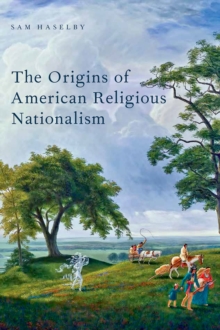
Evangelizing the South Hardback
by Monica (Assistant Professor of History, Assistant Professor of History, Lehigh University) Najar
Part of the Religion in America series
Hardback
Description
Although many refer to the American South as the "Bible Belt", the region was not always characterized by a powerful religious culture.
In the seventeenth century and early eighteenth century, religion-in terms both of church membership and personal piety-was virtually absent from southern culture.
The late eighteenth century and early nineteenth century, however, witnessed the astonishingly rapid rise of evangelical religion in the Upper South.
Within just a few years, evangelicals had spread their beliefs and their fervor, gaining converts and building churches throughout Virginia and North Carolina and into the western regions.
But what was it that made evangelicalism so attractive to a region previously uninterested in religion? Monica Najar argues that early evangelicals successfully negotiated the various challenges of the eighteenth-century landscape by creating churches that functioned as civil as well as religious bodies.
The evangelical church of the late eighteenth century was the cornerstone of its community, regulating marriages, monitoring prices, arbitrating business, and settling disputes.
As the era experienced substantial rifts in the relationship between church and state, the disestablishment of colonial churches paved the way for new formulations of church-state relations.
The evangelical churches were well-positioned to provide guidance in uncertain times, and their multiple functions allowed them to reshape many of the central elements of authority in southern society.
They assisted in reformulating the lines between the "religious" and "secular" realms, with significant consequences for both religion and the emerging nation-state. Touching on the creation of a distinctive southern culture, the position of women in the private and public arenas, family life in the Old South, the relationship between religion and slavery, and the political culture of the early republic, Najar reveals the history behind a religious heritage that remains a distinguishing mark of American society.
Information
-
Out of stock
- Format:Hardback
- Pages:264 pages
- Publisher:Oxford University Press Inc
- Publication Date:28/02/2008
- Category:
- ISBN:9780195309003
Information
-
Out of stock
- Format:Hardback
- Pages:264 pages
- Publisher:Oxford University Press Inc
- Publication Date:28/02/2008
- Category:
- ISBN:9780195309003










